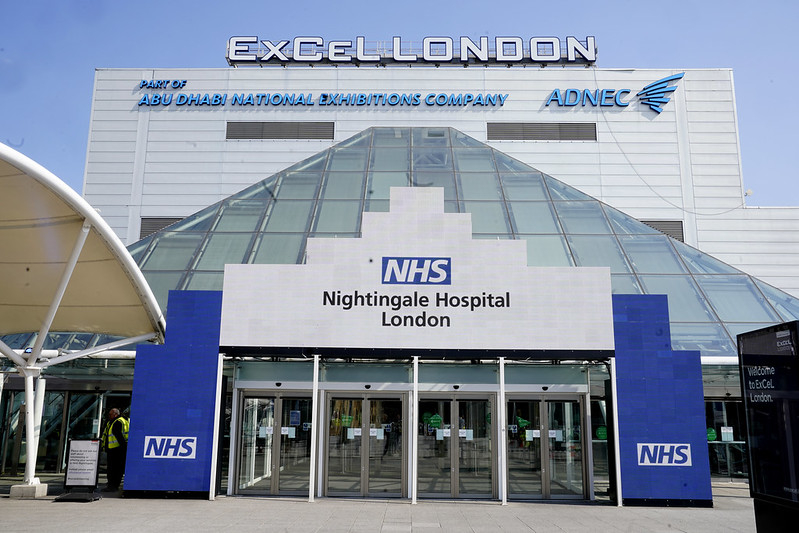
UK manufacturers and design teams have been at the forefront of the country’s response to the coronavirus outbreak.
Innovative products and construction techniques came under the spotlight as the NHS announced its intention to build a network of temporary ‘Nightingale hospitals’ across the country to house thousands of patients struck down by the killer COVID-19 virus. The first hospital was constructed at the ExCeL conference centre in east London, taking 160 contractors and 200 Army engineers just under a week to complete and opening in early April.
Initially, it has 500 beds, but capacity to take up to 4,000 patients across 80 wards. The work to transform the public venue was overseen by main contractor, CFES, working with Midas Group and architectural practice, BDP. And, following the success of the project, BDP produced a poster collating the various concepts adopted at the site in order that the information could be disseminated quickly to other groups building similar facilities elsewhere in the UK and overseas.
The design team has since worked on the other NHS Nightingale projects up and down the country. Nick Fairham, architect director at BDP in Bristol, told hdm: “The BDP team has been busy working all hours to ensure the temporary hospitals are delivered as quickly as possible – it’s a high-pressure, fast-paced environment where everyone is working collaboratively to deliver these vital beds. “But it is the scale, timeframe and purpose of this emergency facility that distinguishes it from any previous healthcare projects. “Working together with cross-industry involvement has been key, and BDP hopes that it will pave the way for better collaboration in the property and construction sector in future.”
A well-oiled machine
Wilson James was appointed as the main logistics and security operator for the NHS Nightingale Hospital at the ExCeL, later helping on other sites up and down the country. The firm was initially tasked with co-ordinating the construction logistics aspect of the ExCeL operation, but was soon asked to support the NHS supply chain as well. This meant making sure that items including drugs and medicines, medical equipment, beds and hazardous waste bags were met on delivery and then categorised, audited, inventoried, stored and delivered to where they were needed, when they were needed, and in the required quantities. Keith Winterflood, the company’s director of operations for the project, said: “This project showed how the various elements of the construction sector can come together as one, from design to mechanical and electrical (M&E), when there’s such an important goal to achieve. “We’ve all been pushed to the extreme, but when the coronavirus pandemic is over, and it will be over at some point, the memory of what was achieved with NHS Nightingale will live on.”
Coming together
This initial project at the ExCeL was followed by the creation of similar at Manchester Central Complex and Birmingham’s National Exhibition Centre as well as at the University of the West of England in Bristol and Harrogate Convention Centre. Contractors including Interserve and Vinci helped develop the facilities. Wales, Scotland and Northern Ireland also increased bed numbers and opened temporary ‘field hospitals’ in sports and leisure complexes, including at the Scottish Exhibition and Conference Centre in Glasgow. The Birmingham hospital, which opened on 10 April, was delivered in just eight days by BDP and contractor, Interserve; while Manchester, which launched a week later, was built by IHP, a joint venture between VINCI Construction UK and Sir Robert McAlpine in conjunction with Mott MacDonald and M&E contractor, NG Bailey. Harrogate, which was constructed by BAM, opened on 21 April, providing 500 beds across 10,253sq m of the Grade II listed building. To illustrate the scale of the project, 13 miles of copper, 15,00sq of vinyl and 18,000sq m of hygienic walling was installed, as well as 1,000 pieces of IT equipment with 100 miles of cable and more than seven million litres of oxygen. The last of England’s field hospitals to open was Bristol, which launched on 24 April and was developed by Kier.
Making their mark
But it’s not just design and construction companies that have played their part. Manufacturers, too, have worked round the clock to ensure they can supply enough equipment, furniture and fixtures and fittings for the many hundreds of individual bed bays and associated facilities. Companies involved in the projects include: